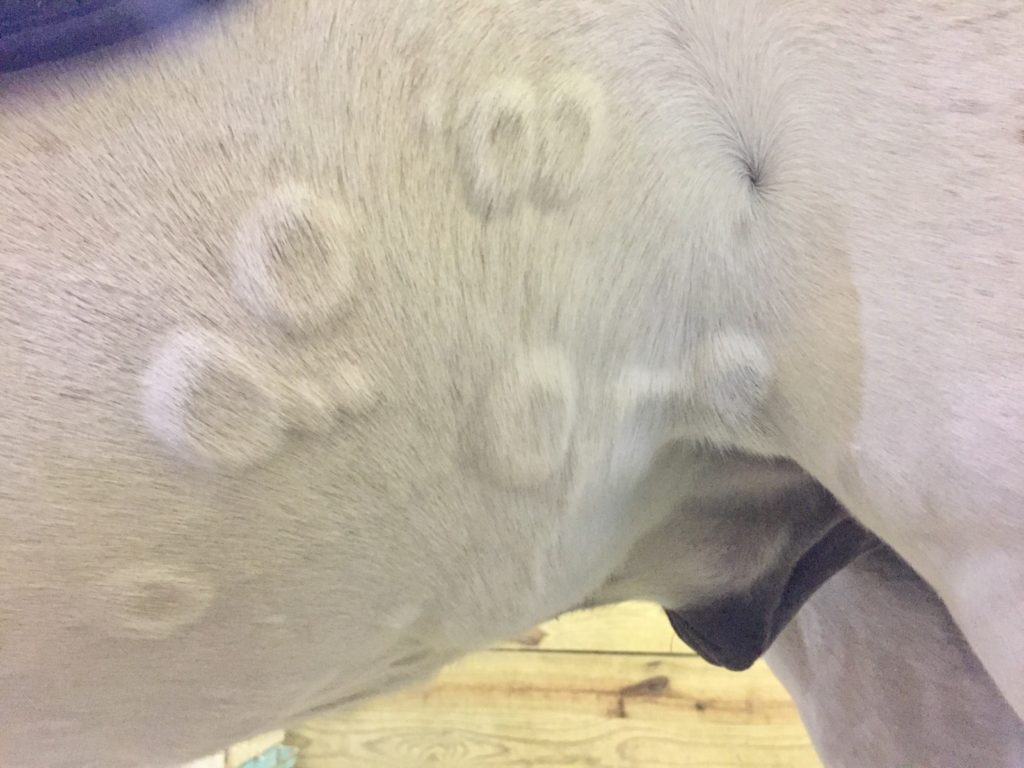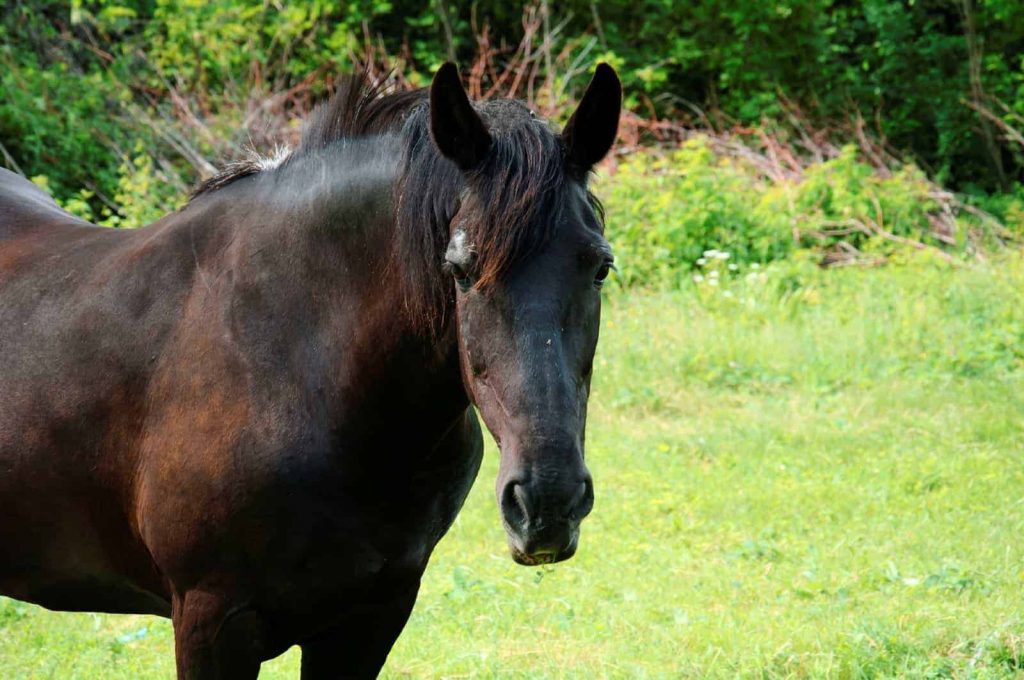
How To Manage a Horse With Seasonal Allergies
Here’s what you can do to help your allergy-prone horse prepare for the onslaught of seasonal allergens.

Here’s what you can do to help your allergy-prone horse prepare for the onslaught of seasonal allergens.

Learn how allergies happen, how they affect your horse’s body, and how to avoid or treat them.

Summer sores can worsen rapidly without prompt treatment. Find out how to prevent these lesions and explore methods veterinarians use to address them.

Learn how to recognize summer sores in horses and what your veterinarian might do to make a definitive diagnosis.

Follow the steps in this visual guide to relieve your horse’s clinical signs of insect bite hypersensitivity and prevent future flare-ups. Sponsored by KineticVet.

An equine nutritionist answers a reader question about how her horse’s diet might play a role in his poor coat quality and hair loss.

Experts share feeding, grooming, and bathing tips to keep your horse’s hair coat gleaming.

There’s nothing appealing about this seasonal skin condition. Here’s what experts know about managing, treating, and preventing sweet itch in horses.

One expert explains why horses get hives and how they can be treated.

Do you have a horse with insect bite hypersensitivity, contact dermatitis, or respiratory allergies? Learn how to make him more comfortable. Sponsored by KineticVet.

Horse show environments can put sport horses at risk for developing skin problems. Learn what causes common skin issues and how to return horses to top form.

Look for educational information about equine skin infections all week on TheHorse.com.

Horses are very adaptable and typically can handle significant temperature changes; however, when we alter their natural condition, they might struggle.

Learn about the 4 stages of wound repair and the steps you can take to help your horse’s wounds heal.

Dr. Aja Harvey explains why an old horse might suddenly become very itchy, and how owners can prevent it.

Miniature Horses with allergies can be challenging to manage and might have different dietary needs than their larger counterparts.
Stay on top of the most recent Horse Health news with
"*" indicates required fields